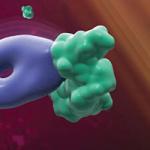
Research Topics
The objectives of the Lipid Peroxidation Unit are: (1) to uncover molecular mechanisms linking dysfunctional lipid metabolism and accelerated lipid peroxidation to the pathogenesis of Alzheimer's disease and chronic pain, and (2) to translate discoveries into safe and effective diet and drug-based treatments. The Unit applies an interdisciplinary, translational, team science approach—including clinical trials, postmortem studies, cellular models, immunohistochemistry, and synthetic and analytical chemistry—to achieve these objectives. Our work has contributed to new mechanistic paradigms for Alzheimer's disease and chronic pain, and new therapeutic approaches for chronic pain in humans.
Biography
Dr. Ramsden is the Chief of the Lipid Peroxidation Unit within the Laboratory of Clinical Investigation in the National Institute on Aging (NIA) and a CAPT in the Commissioned Corps of the U.S. Public Health Service. His Unit leverages expertise in brain lipids and lipoproteins to uncover molecular mechanisms and develop new treatments for chronic pain and Alzheimer’s disease. Dr. Ramsden received his B.S. in Biology from the University of Virginia, M.D. from the Medical College of Georgia, and Ph.D. from the University of Adelaide. Following completion of medical internship and residency, Dr. Ramsden was a clinical research fellow at UNC-Chapel Hill before joining the Intramural Program of the NIAAA as a Clinical Investigator in 2009. In 2016, he joined the NIA Laboratory of Clinical Investigation as a Tenure-Track Investigator in Baltimore, MD, with a joint appointment in the Intramural Program of NIAAA in Bethesda, MD.
Selected Publications
- Ramsden CE, Zamora D, Horowitz MS, Jahanipour J, Calzada E, Li X, Keyes GS, Murray HC, Curtis MA, Faull RM, Sedlock A, Maric D. ApoER2-Dab1 disruption as the origin of pTau-associated neurodegeneration in sporadic Alzheimer's disease. Acta Neuropathol Commun. 2023;11(1):197.
- Ramsden CE, Keyes GS, Calzada E, Horowitz MS, Zamora D, Jahanipour J, Sedlock A, Indig FE, Moaddel R, Kapogiannis D, Maric D. Lipid Peroxidation Induced ApoE Receptor-Ligand Disruption as a Unifying Hypothesis Underlying Sporadic Alzheimer's Disease in Humans. J Alzheimers Dis. 2022;87(3):1251-1290.
- Ramsden CE, Zamora D, Faurot KR, MacIntosh B, Horowitz M, Keyes GS, Yuan ZX, Miller V, Lynch C, Honvoh G, Park J, Levy R, Domenichiello AF, Johnston A, Majchrzak-Hong S, Hibbeln JR, Barrow DA, Loewke J, Davis JM, Mannes A, Palsson OS, Suchindran CM, Gaylord SA, Mann JD. Dietary alteration of n-3 and n-6 fatty acids for headache reduction in adults with migraine: randomized controlled trial. BMJ. 2021;374:n1448.
- Ramsden CE, Faurot KR, Zamora D, Suchindran CM, MacIntosh BA, Gaylord S, Ringel A, Hibbeln JR, Feldstein AE, Mori TA, Barden A, Lynch C, Coble R, Mas E, Palsson O, Barrow DA, Mann DJ. Targeted alteration of dietary n-3 and n-6 fatty acids for the treatment of chronic headaches: a randomized trial. Pain. 2013;154(11):2441-2451.
- Ramsden CE, Zamora D, Majchrzak-Hong S, Faurot KR, Broste SK, Frantz RP, Davis JM, Ringel A, Suchindran CM, Hibbeln JR. Re-evaluation of the traditional diet-heart hypothesis: analysis of recovered data from Minnesota Coronary Experiment (1968-73). BMJ. 2016;353:i1246.
Related Scientific Focus Areas



Molecular Biology and Biochemistry
View additional Principal Investigators in Molecular Biology and Biochemistry


This page was last updated on Monday, August 18, 2025